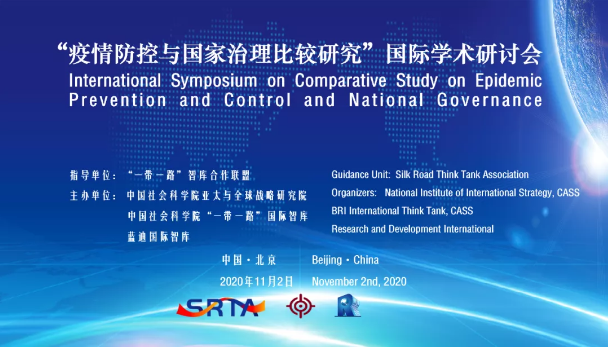
The International Symposium on Comparative Study on Epidemic Prevention and Control and National Governance held in Beijing
Since the end of 2019, the sudden outbreak of COVID-19 has swept across the globe, bringing enormous political, economic and social impacts to the world. It has posed a test to the governance system and capacity of all countries, who have made every effort to respond to the epidemic. However, the effect of prevention and control varies greatly, and there are huge differences in governance concepts, approaches and capacities. Effective prevention and control of COVID-19 bears on not only people’s livelihood, but also the economic growth and social stability of all countries. It affects the realization of global sustainable development goals, representing the top priority of global and national and social governance of all countries.
In order to obtain a thorough understanding of the relationship between epidemic prevention and control and national governance system and capacity, probe into the main factors affecting the effectiveness of national governance, learn from the effective epidemic containing measures of other countries, and share China’s governance experience, under the guidance of the Silk Road Think Tank Association, the International Symposium on Comparative Study on Epidemic Prevention and Control and National Governance was held on November 2nd, 2020 co-organized by the National Institute of International Strategy of CASS, BRI International Think Tank of CASS and RDI. From the perspective of national governance, experts and scholars attending the symposium conducted in-depth comparative analyses of epidemic prevention and control of major countries, and explored fundamental approaches for the modernization of national governance system and capacity.
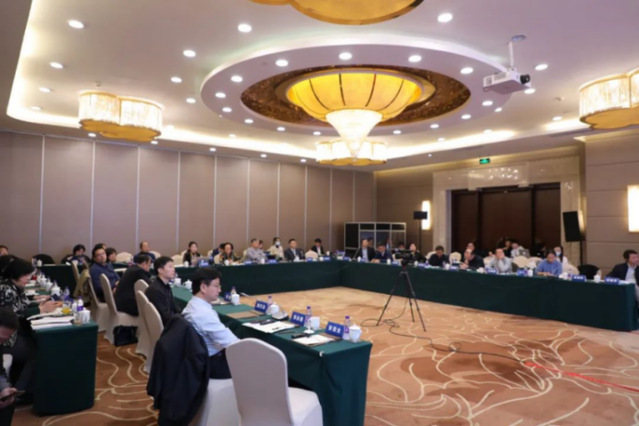
The International Symposium on Comparative Study on Epidemic Prevention and Control and National Governance
1. The Epidemic’s Impacts on the World Political and Economic Systems and Changes in the Global Landscape
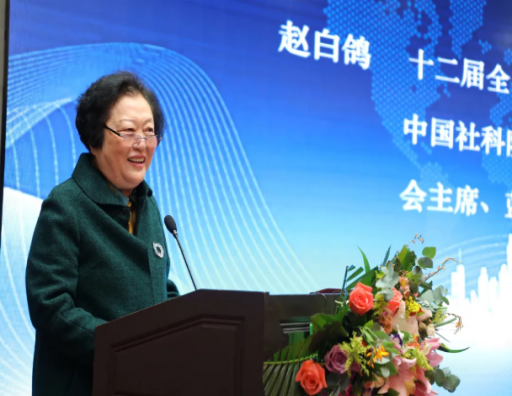
Baige ZHAO delivering a keynote speech entitled
“Implication of China’s Fight against COVID-19 to the World”
Baige ZHAO, Chair of Advisory Committee of RDI, delivered a keynote speech entitled “Implication of China’s Fight Against COVID-19 to the World”. ZHAO said that China’s fight against the epidemic reflects its spirit, responsibilities and strength, and that the China’s success in the epidemic containment is attributed to the fine culture and great spirit of the Chinese nation as well as advanced technologies of the 4th Industrial Revolution, making enormous contributions to global epidemic prevention and control. China has achieved early victory against COVID-19 and speeded up the recovery of economic and social development, boosting the world’s confidence in containing the virus and stabilizing economy. As COVID-19 appeared for the first time throughout human history, countries around the world had no off-the-shelf measures or schemes for its containment and treatment. Yet after the outbreak, China gained a great deal of precious experience at great sacrifice and cost and shared it with the world without reservation, providing the international community with valuable experience and solutions for the prevention and control of the epidemic, and gaining a critical window period for the world to tame the epidemic. China will stand together with other countries in the face of challenges, contribute its strength and wisdom to the world’s final victory against the epidemic, and work with all parties to build “a Community with a Shared Future for Mankind” during the process of containing the epidemic, securing happiness and health of people around the world.
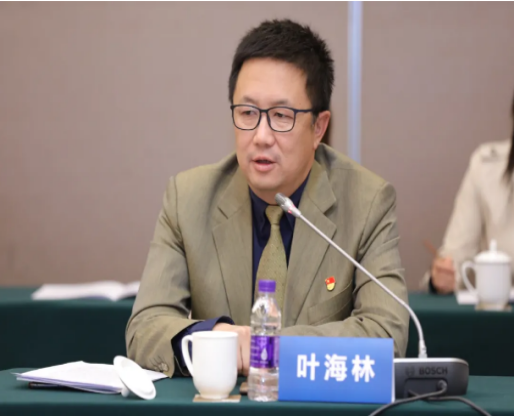
Hailin YE saying that in the post-epidemic era, we will face an era of pan-security around the globe
Hailin YE, Deputy Director of the National Institute of International Strategy of CASS believes that COVID-19 did not change the direction of human history, but rather dramatically changed the rate at which human history moved forward in a certain direction. Even before its outbreak, the golden age of cooperation has already come to an end, both in the Asia-Pacific region and globally, and the world was moving towards confrontation. It’s fair to say that COVID-19 only reinforces the pre-existing uncooperative tendency. In the post-epidemic era, we will face an era of pan-security around the globe, in which the security claims will become the dominant public appeal and global public opinion, posing a challenge to globalization and global cooperation.
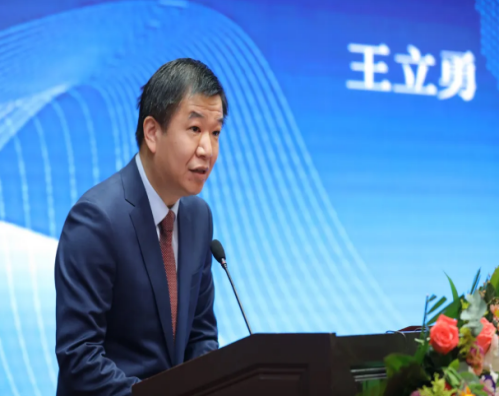
Liyong WANG indicating that countries around the world have been actively exploring ways to
fight the epidemic and promote development according to their own national conditions
Liyong WANG, Deputy Director-General of CCCWS of the International Department of the Central Committee of the CPC pointed out that the threat COVID-19 poses to mankind is far from over. Against this backdrop, how to effectively prevent and control the epidemic while keeping the economy and society on track remains a major task for the governments and people of all countries, which requires continued exploration. WANG indicated that countries around the world have been actively exploring ways to fight the epidemic and promote development according to their own national conditions. Different models and approaches for the battle against COVID-19 root in the differences in values, political culture, political responsibility and governance capacity of countries. These factors are interrelated and influence each other, ultimately leading to the different response concepts and policy measures of countries.
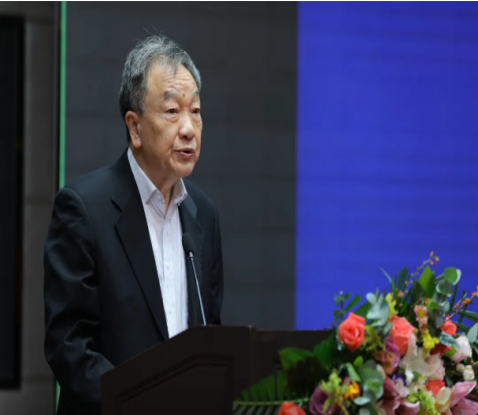
Shenming LI pointing out that the COVID-19 epidemic has fully demonstrated
the hard and soft strength of the socialist system with Chinese characteristics
Shenming LI, former Vice President of CASS, stated that if the 2008 international financial crisis marks the prologue of a historical period of great turbulence, changes and development in the world, then the COVID-19 outbreak in 2020 would be a significant sign of its formal downfall. In a sense, the disaster is ripping the world further apart, exacerbating the global polarization between the rich and the poor. The COVID-19 epidemic has fully demonstrated the hard and soft strength of the socialist system with Chinese characteristics. After the triumph against the COVID-19 epidemic, China will step steadily toward the center of the world stage.
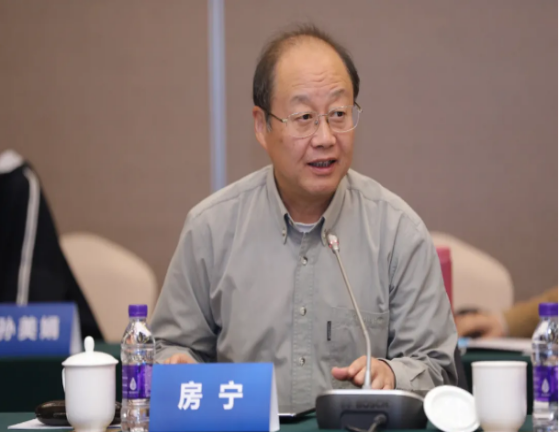
Ning FANG noting that the COVID-19 prevention and treatment has led the world to
a new understanding of China’s political system and governance syste
Ning FANG, former Director of the Institute of Political Science of CASS, believes that the Chinese Government’s high-quality decisions, executive capability with unified efforts and the ability of extensive social mobilization are important factors for the initial success in the fight against the epidemic. The COVID-19 prevention and treatment has led the world to a new understanding of China’s political system and governance system. The epidemic has tested the ruling ability of the CPC, the rationality of China’s political system, the modernization and capacity of China’s governance system and the will and spirit of all Chinese people. It’s fair to say that China’s political system, the CPC and the Chinese people have stood up to and well passed the test.
2. Country-based Discussion: Comparative Study on Epidemic Prevention and Control and National Governance
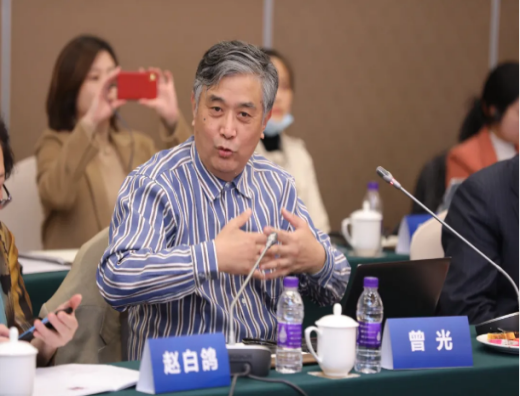
Professor Guang ZENG illustrating that China established the “Whole Nation System”to fight against the Covid-19
Professor Guang ZENG, Member of the High-level Expert Group of NHC and Member of Advisory Committee of RDI, stated that in the face of the unknown and raging epidemic, the CPC and the Chinese Government attached great importance to and took swift actions to resolutely prevent and control it. With such efforts, China has achieved quick and effective control over the spread of COVID-19, securing a stage victory. Professor ZENG outlined China’s decisions and policy execution mechanisms for fighting the epidemic from the perspective of the “Whole Nation System”. He refers to the “Whole Nation System” as the employment of national mechanisms and the strength of the whole society for the response to the epidemic. China has applied the experience of SARS prevention and treatment to that of COVID-19, strictly implementing border and internal prevention and control. ZENG said that the novel coronavirus always makes a comeback, which requires a positive attitude towards epidemic prevention and control. This means we need to slowly accept the fact that coronavirus prevention and control will become a norm in our life.
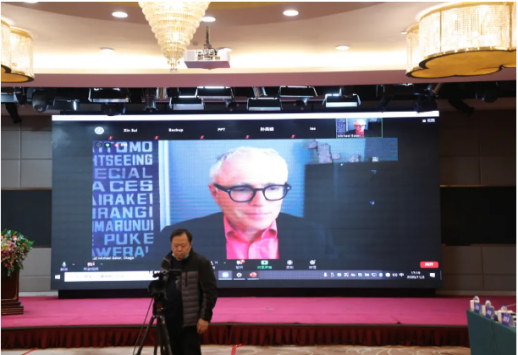
Michael BAKER introducing New Zealand’s experience in fighting the virus
Michael BAKER, Professor of Epidemiology at the University of Otago, introduced the different anti-epidemic strategies adopted by New Zealand in different stages, including prediction modeling, lockdown, the COVID-19 prevention and control plan, strict border management and so on. BAKER said that China had managed the epidemic so well, which boosted New Zealand experts’ confidence in containing and eliminating it in New Zealand.
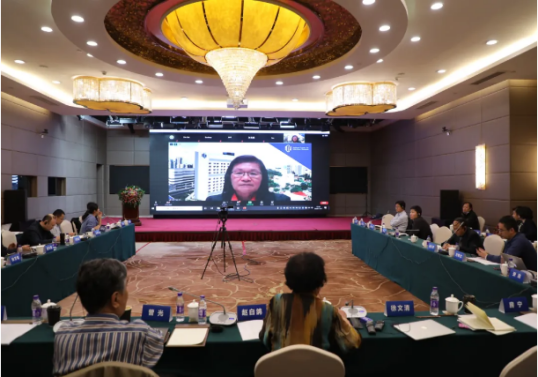
LEO Yee Sin telling the Singapore’s measures to fights against the Covid-19
LEO Yee Sin, Executive Director of Singapore’s National Center for Infectious Diseases, noted that the majority of infections in Singapore are imported cases. Singapore has adopted a highly proactive policy of identifying cases through extensive testing and quarantine. As an international air harbor and tourist hub, Singapore is gradually opening its borders, designated places and low-risk areas, in the hope of minimizing imported cases while avoiding community transmission. Singapore, like China, went through the SARS epidemic in 2003. Since then, it has increased its investment in the medical sector, established a new National Center for Infectious Diseases, and trained medical personnel’s ability to respond to and detect epidemic diseases and their R&D capabilities. This is also a significant reason for Singapore’s effective response to COVID-19.
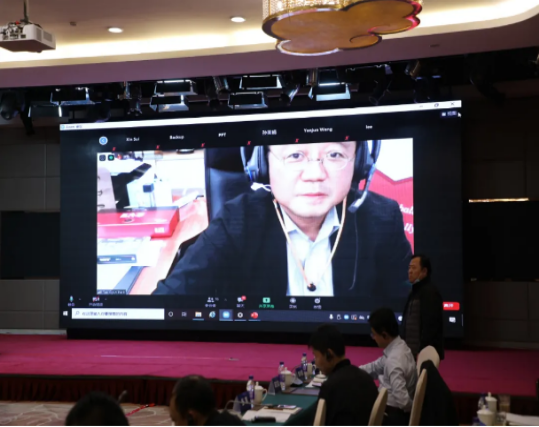
PARK Tae Gyun introducing South Korea’s “3T” measures to all the participates
PARK Tae Gyun, Dean of Graduate School of International Studies of Seoul National University, believed that one of the greatest contributions of South Korea in the prevention and control of COVID-19 was the “3T” measures, namely “Test, Tracking and Treatment”, which helped effectively respond to the epidemic and gained more public support for the Moon Jae-in administration. Since the epidemic has exerted a huge impact on South Korea’s economy, the government preferred strategies that could balance economic development and the lockdown when dealing with the epidemic. COVID-19 is reshuffling economies around the world, putting supply chain and value chain at risk of collapse. South Korea continued its close ties and economic and trade cooperation with traditional friendly countries, and meanwhile, pushing forward the “New South Policy” to further strengthen relations with non-traditional friendly countries.
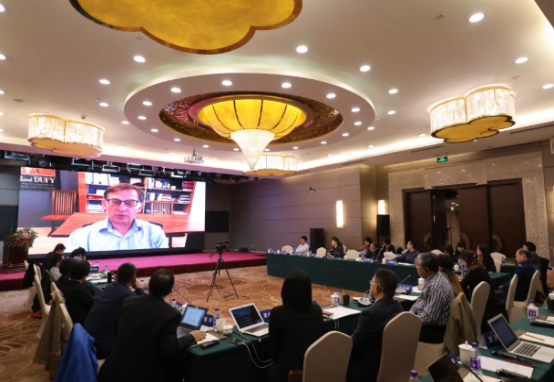
Professor Ian LIPKIN expressing his hope for the U.S. and China working together to fight against the virus
As for international cooperation during the epidemic, Walter Ian LIPKIN, Professor of Epidemiology of Columbia University, pointed out that his ties with Chinese people were built in the battle against SARS in 2003 when China’s science and public health infrastructures were nowhere near what it is today. Now, China has developed into a strong country with abundant resources and extraordinary specialist teams. The progress over the past few years has proved China’s leadership in pointing the right direction for investment and research. It is now the time for China to help those in need.
At the Symposium, experts in international issues from CASS and Yunnan Academy of Social Sciences discussed the measures taken by Vietnam, North Korea, South Korea, Thailand and other countries to prevent and control COVID-19. They thought that governments and people of the above countries basically held a science-based attitude, and measures against the epidemic have been secured by wide public support, strong government leadership and advantages of unique locations and social cultures.
Baige ZHAO, Chair of Advisory Committee of RDI, said in the concluding remark that at this critical moment of combating COVID-19, combining epidemic prevention and control with national governance, in fact, means to integrate natural science and political science. Such multidisciplinary fusion sets a great example and further researches should be carried out on governance framework, national openness, cultural values, standards for formulating public policies, and international discourse system, etc.
Guang ZENG, Member of Advisory Committee of RDI, invited to the Conference on the Prevention and Control of COVID-19 in Poland
On November 28th, 2020, the Conference on the Prevention and Control of COVID-19 (Online) was successfully organized in Warsaw, Poland. Professor Guang ZENG, Member of the High-level Expert Group of NHC, Chief Scientist of Epidemiology of China CDC and Member of Advisory Committee of RDI, was invited to the online conference, at which Professor ZENG shared China’s experience in combating the epidemic with the Polish people.
SOSSENIERS, former President of the National Health Fund of Poland, Slawomir NEUMANN, former Undersecretary of State for the Polish Ministry of Health, Pawe GRZESIOWSKI, Expert of the Supreme Medical Council of Poland for Covid-19, Agnieszka MASZTALERZ-MIGAS, Head of the Department of Family Medicine, Wroclaw Medical University, and Igor RADZIEWICZ-WINNICKI, former Undersecretary of State for the Polish Ministry of Health and Excutive Medical Director of the Warsaw Hospital attended the conference. The conference was broadcast live online and received high attention from all walks of life in Poland.
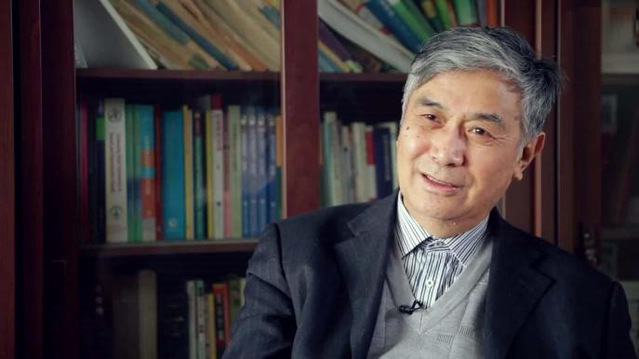
Professor Guang ZENG attending the Conference on the Prevention and Control of COVID-19 online
Guang ZENG said at the conference that an important lesson learned from China’s prevention and control of COVID-19 is the Whole Nation System. The key to China’s victory during this fight include: 1) China has set up headquarters, staff and combat departments, forming a mechanism for decision makers, related departments and scientists to coordinate and make joint decisions. And the important role of this mechanism has been proved during the fight against the epidemic; 2) China took quick actions at the early stage. For example,China’ resolute lockdown of Wuhan city; and 3) China made efforts to investigate all the infected people and close contacts, identify all the close contacts and put them under centralized quarantine rather than home-based observation, thoroughly cutting off the transmission. ZENG finally expressed his wishes to the Polish people, saying that the current period was the darkest moment before dawn for the Polish people and the vaccines would be available soon. He hoped that the Polish people could continue the efforts to prevent and control the epidemic strictly, so as to secure the final victory.
After the conference, RDI received a letter of thanks signed by Ms. Joanna Kluzik-ROSTKOWSKA, Member of the Polish Parliament, former Minister of National Education and Chairwoman of the SEJM for Civic Platform. Ms. Joanna said that the presence of the Chinese scientist Guang ZENG raised the rank of the conference; that China’s experience in COVID-19 prevention and control received with great interest by Polish politicians and has contributed well to good Polish-Chinese relations. She hoped that in the future, more voices of Chinese think tanks would be heard in Poland and further cooperation with RDI could be carried out in selected areas.
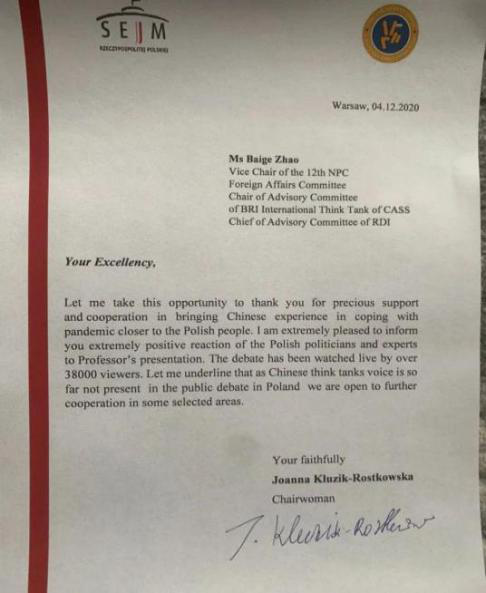
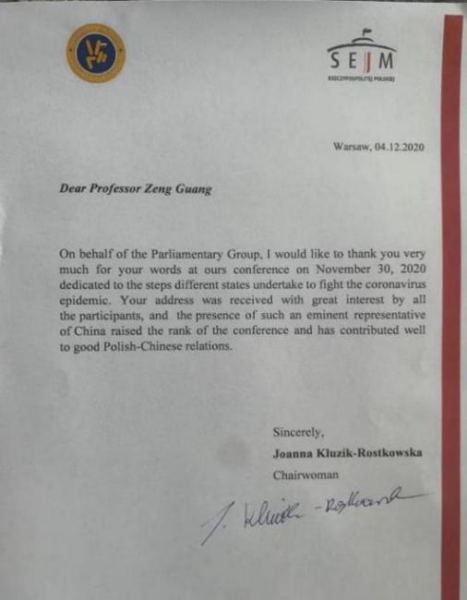
Letter of Thanks from Ms. Joanna Kluzik-ROSTKOWSKA, Member of the Polish Parliament,
former Minister of National Education and Chairwoman of the SEJM for Civic Platform
Situated in Central and Eastern Europe, Poland is an important country along the B&R. Railways connecting the continents of Europe and Asia, such as Chengdu-Europe Express Railway and Suzhou-Warsaw Express Railway, all run through Poland. Currently, China and Poland have conducted cooperation in a number of infrastructure projects, including Central Communication/Transport Port. China-Poland cooperation boasts huge potential and efforts should be made to further explore new areas for cooperation and projects. In the future, RDI will fully connect to its international network in Central Asia, Central and Eastern Europe, the EU, Southeast Asia and Africa, contributing to cooperation between the countries jointly building the B&R and major cities in China.
Share to Friends
